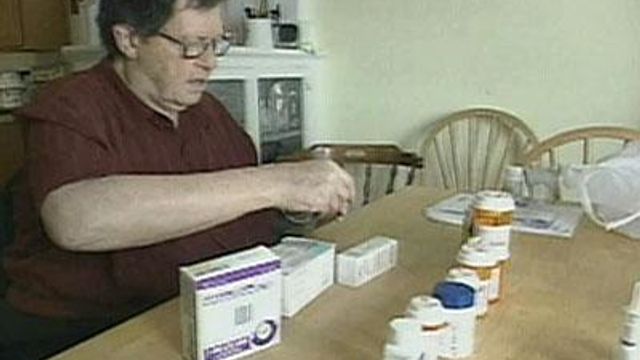Health Team
Study: Medicare Rx Plan Not Helping Those Who Need It
The Medicare Part D program was meant to make prescription medications more affordable, but a new study shows that it may not be helping those that need it the most.
Posted — UpdatedRALEIGH, N.C. — The Medicare Part D program was meant to make prescription medications more affordable, but a new study shows that it may not be helping those who need it the most.
Larry Brewer, 67, has several chronic illnesses, including a heart condition, depression and high blood pressure. In July, he said, his Medicare Part D benefits run out.
“At that point, I start really cutting back on my prescriptions. There’s some I won’t even take,” Brewer said.
When Medicare Part D started two years ago, it was meant to make drugs more affordable – especially for the poor and chronically ill.
Researchers at Harvard Medical School analyzed data from annual Medicare surveys from 2004 through 2006, the year Part D began. They found a small decrease in the tendency of beneficiaries to back on essential needs in order to afford prescriptions.
“Across all groups that we saw that rate go down about 40 percent compared to what it had been before Part D began,” said Jeanne Madden, a Ph.D. in Harvard Medical School's Department of Ambulatory Care and Prevention.
The researchers added, however, that there wasn't much change in medicine-skipping among the sickest people.
Skipping medications is still a problem for others like Brewer.
“We found that the sickest beneficiaries actually showed no improvement after Part D began on the measure of pill-skipping due to high costs,” Madden said.
The study appears in the Journal of the American Medical Association.
Researchers said high co-payments and the loss of benefits after the first $2,250 make it tougher for recipients.
When Brewer’s benefits dry up, he said, he pays about $700 a month.
“Just think. If I was taking all my prescriptions the way I was supposed to, it would chew up most of my Social Security,” Brewer said.
Brewer said Medicare helps to some extent, but this summer he'll be in the same difficult situation.
Researchers said about 10 percent of Medicare beneficiaries, including about 3 million low-income individuals, still have no prescription drug coverage.





